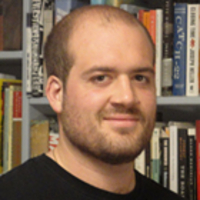Cut Me Loose: Sin and Salvation After My Ultra-Orthodox Girlhood
By Leah Vincent

Whatever the ideology, few display the zeal of the convert. For writer and activist Leah Vincent, born the daughter of a Rabbi in an ultra-orthodox community in Pittsburgh, the ideology in which she found herself an eager neophyte was one that most of us in this country take for granted: secular self-determination. In Cut Me Loose, she describes her creeping disillusionment with the paternalistic and self-segregating world of the Yeshivish, in which a girl was expected to “move from her father’s home to her husband’s” at a young age, and where she was exposed to such sentiment as “blacks aren’t like other non-Jews. They live like animals” and “A woman’s brain cannot handle Talmud.” Circumstance conspires to end her chances to be an upstanding and respectable orthodox woman when her parents discover her letters with a male, a big no-no, and cast her out at age 17. Adrift in New York with no support network, her hyper-repressed sexuality suddenly becomes a new super-weapon, and she begins a spiral of self-destruction reminiscent of Mary Karr’s The Liar’s Club. For a devout ultra-orthodox reader, the book will read like a cautionary tale on how to keep your daughter vigilant against the seductions of secular society. But for the rest of us, Vincent has written a visceral and uplifting story about conquering the unique injustices forced on women in not one, but two, different worlds.
Arik: The Life of Ariel Sharon David Landau

It’s frankly alarming how often the release of a major figure’s biography coincides with their demise. On the 11th of January, Ariel Sharon, “Israel’s greatest military leader and political statesman” died in a Tel Aviv suburb after remaining in a persistent vegetative state since a 2006 stroke. The very day before saw the release of Arik, written by the former editor-in-chief of Haaretz David Landau, which offers a comprehensive chronicling of the leader’s complex life. His reputation was forged in war; we see his decisive involvement in Israel’s 1948 War of Independence, the Suez war of 1956, the Seven Day war of 1967, and the Yom Kippur war of 1973, in which Landau does illuminating work of discussing not only maneuvers on the ground but also larger political implications. Sharon’s early hawkishness, including his entanglement in Lebanon in the 80’s, makes all the more dramatic his 2005 decision, as Prime Minister, to disengage from the Gaza Strip. As the mere existence of the state of Israel is controversial for some, the head of the country will naturally be the target of much criticism, and Landau does an excellent job in presenting a fair portrait of a man who strove to do what he thought was best for his people, to the alternating consternation of both the Left and the Right.
The Poetry of Derek Walcott: 1948-2013 Selected by Glyn Maxwell

In an interview some years ago, MacArthur Fellowship and Nobel Prize winning poet Derek Walcott, born into the tail end of the British colonial system in Saint Lucia, said that: “I consider myself to have been brought up in a colonial situation that was benign. Some may say, how can you talk like that, given the background of slavery and exploitation… what I felt as young man was that I was part of this Civis Britannicus sum idea, we are all one... I did not feel different from a British school boy.” However, in The Poetry of Derek Walcott: 1948-2013, his work displays the changes that he underwent both as a man and an artist. He will eventually shed this genteelism, while still struggling with his duel nature. From his poem A Far Cry From Africa: “I who am poisoned with the blood of both,/ Where shall I turn, divided to the vein?/ I who have cursed/ The drunken officer of British rule, how choose/ between this Africa and the English tongue I love?/ Betray them both, or give back what they give?/ How can I face such slaughter and be cool?/ How can I turn from Africa and live?” Although his unique political perspective is interesting, it’s his mastery of the quiet image, rendered in utter control of language, that most impresses, especially when describing his native Caribbean. “The Fishermen, like thieves, shake out their silver,/ the lithe knives wriggle on the drying sand.”






